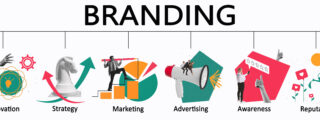
IQ or EQ?
Experts find that when it comes to customer and patient care, as well as internal management, your emotional quotient is actually more important than your intelligence quotient. The good thing is that, though IQ is what it is, you can retrain yourself and others to expand your EQ. Here’s the what, how, and why about EQ vs. IQ.
Tip: Employees who help others at the office are 10x more focused on the job than other staffers.
WHAT
Never heard of EQ? It’s hot in business management circles. And, it should be, because according to EQ expert Travis Bradberry, PhD., “It’s the other kind of smart, and it is responsible for 58% of your job performance.” Better yet, unlike IQ, EQ can be developed in yourself and nurtured in others. Basically, explains Dr. Bradberry, “it’s your ability to recognize and understand emotions, and your ability to use this awareness to manage your behavior and relationships.” It’s basically made up of core skills in two areas—personal (staying aware of and managing your emotions and behavior) and social (understanding other people and improving relationships).
HOW
Haven’t you ever thought, “How come someone that smart can be so dumb?” Chances are that individual lacked some of the key behavioral competencies that, fortunately, can be worked on. According to Ferney & Fernley, you can work on all of this on your own or in a management/employee setting. Here are the five areas they pinpoint that most contribute to EQ:
- OPTIMISM: ability to anticipate the best possible outcome of events or actions;
- SELF AWARENESS: knowledge of current emotional state, strengths, and weaknesses;
- EMPATHY: understanding others’ points of view and decision-making processes;
- IMPULSE CONTROL: ability to mitigate an urge to act;
- REALITY TEST: ability to see things as they are.
WHY
Here are just a couple documented ways building those strengths can benefit business.
- PRODUCTIVITY: According to Gallup, employees who identify themselves as happy in the workplace are 36% more motivated and twice as productive as their counterparts.
- COOPERATION: Harvard research suggests that staff members who help others at the office are 10x more focused on the job than other staffers.
WHAT
EQ is all about developing core values and, as the boss, to believe in your people enough to let them thrive. That means eliciting trust through actions, NOT words. And, for most companies, that requires a fundamental change in overall management style.
WHEN
One of the biggest challenges employees face is stress. Developing a higher EQ can change that. What to do? Dr. Bradberry shares two tricks. First, take a break. Even two minutes away from a stressful online exchange can help. And, two, whatever the cause, stop what you’re doing and focus on breathing in and out.
Have you heard of EQ? If not, read up on why it’s so important and how you can build it in your organization. Please tell us what you think and share in the Facebook conversation here.
Comments are closed.







